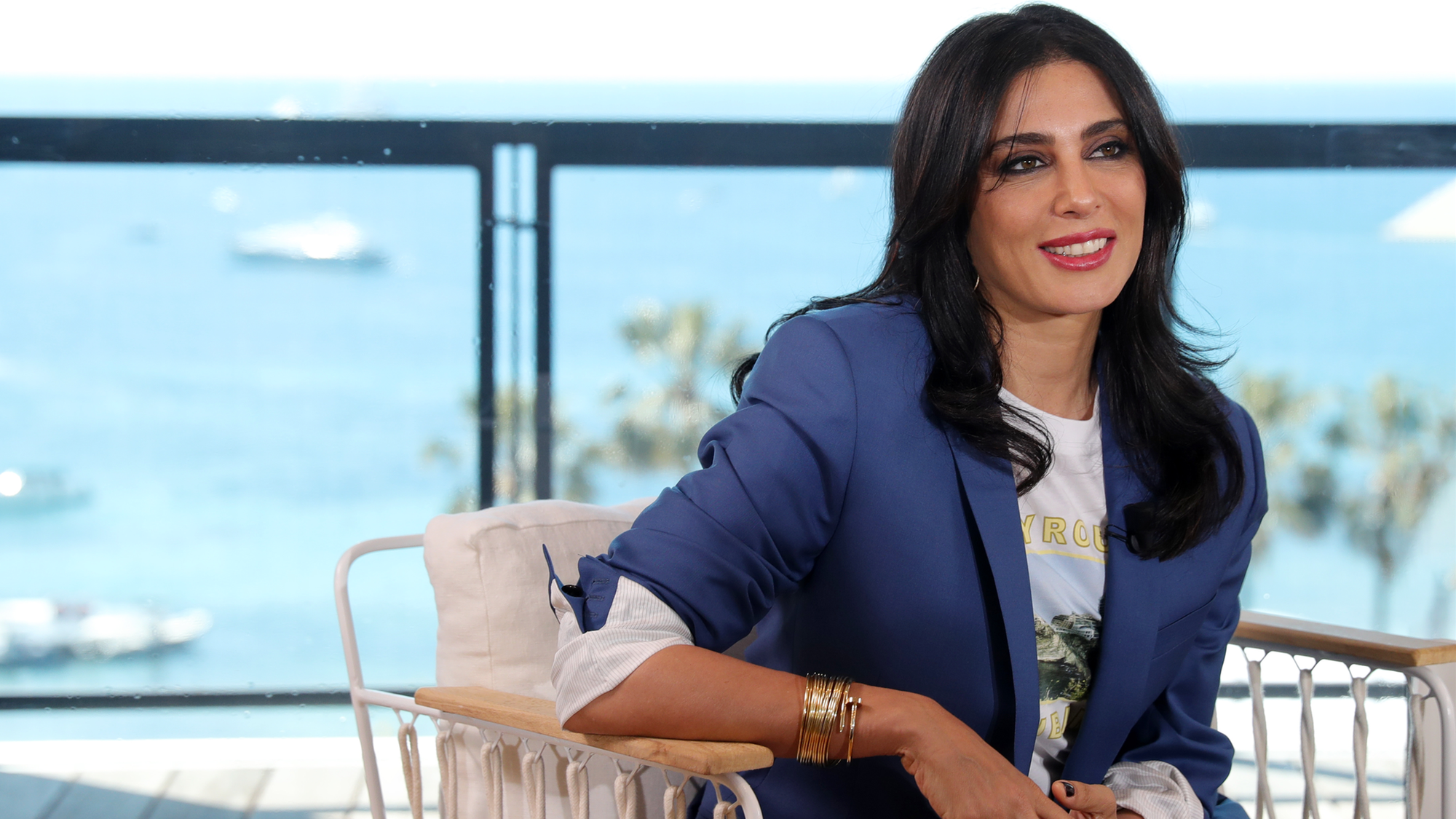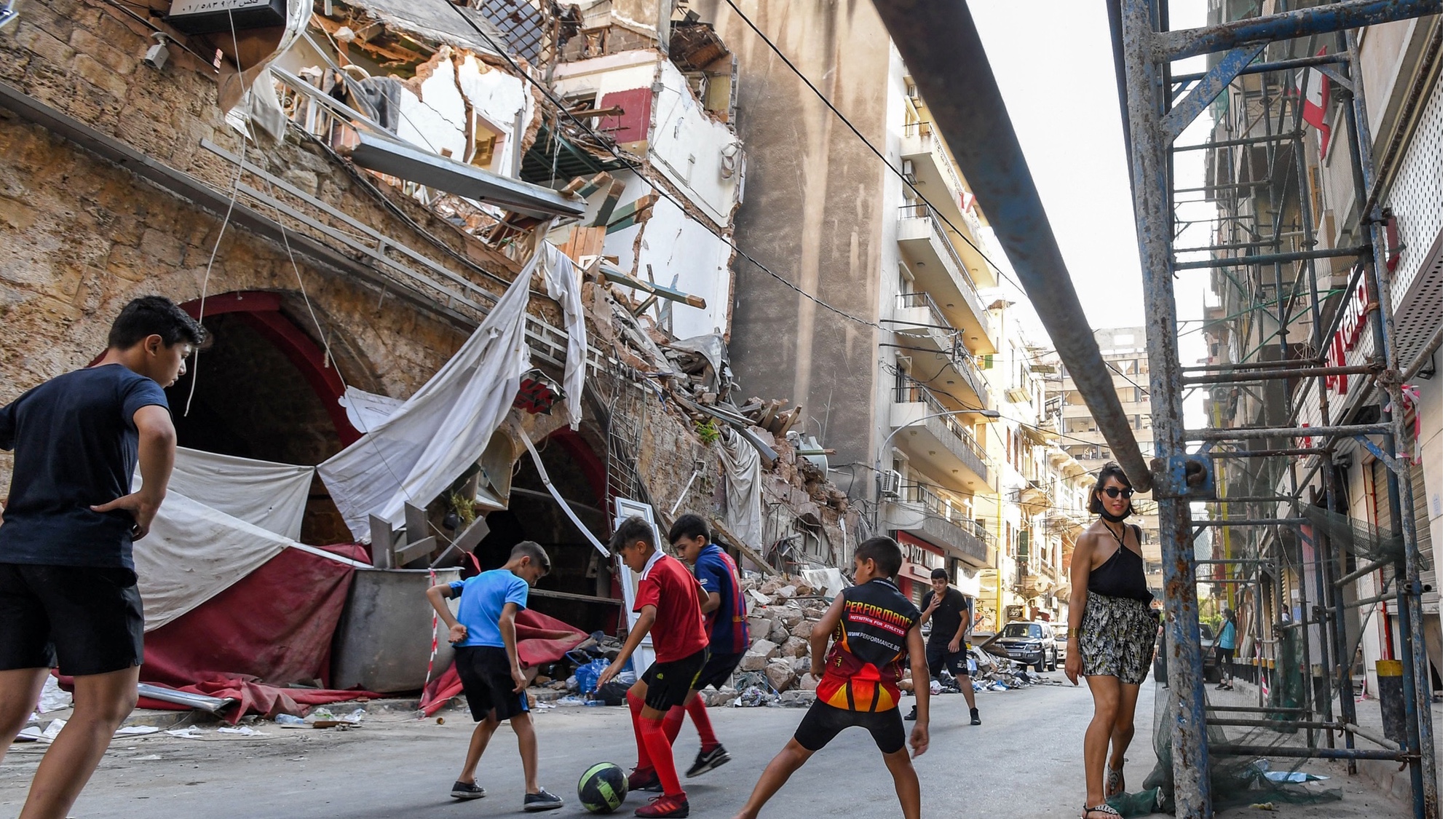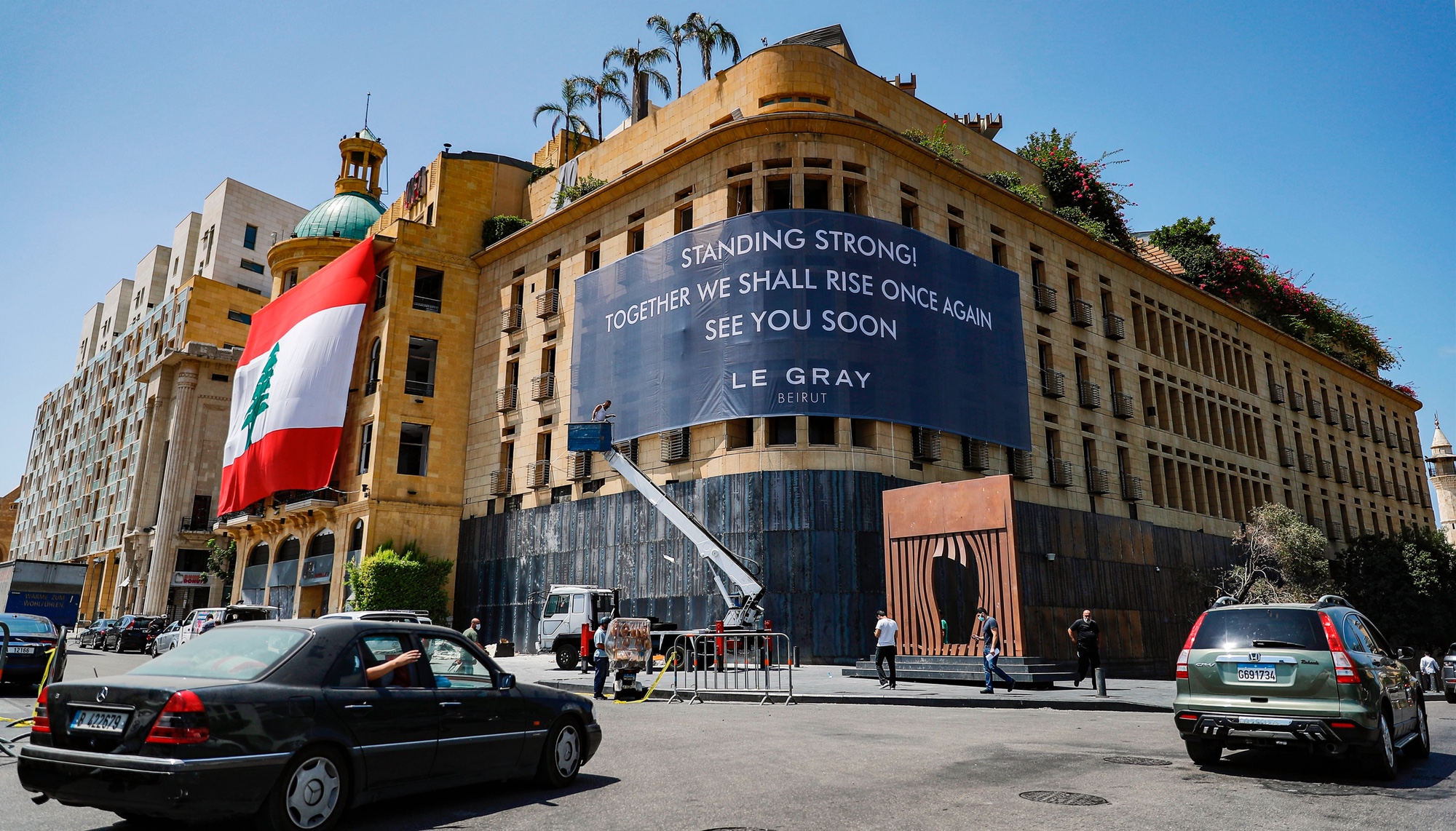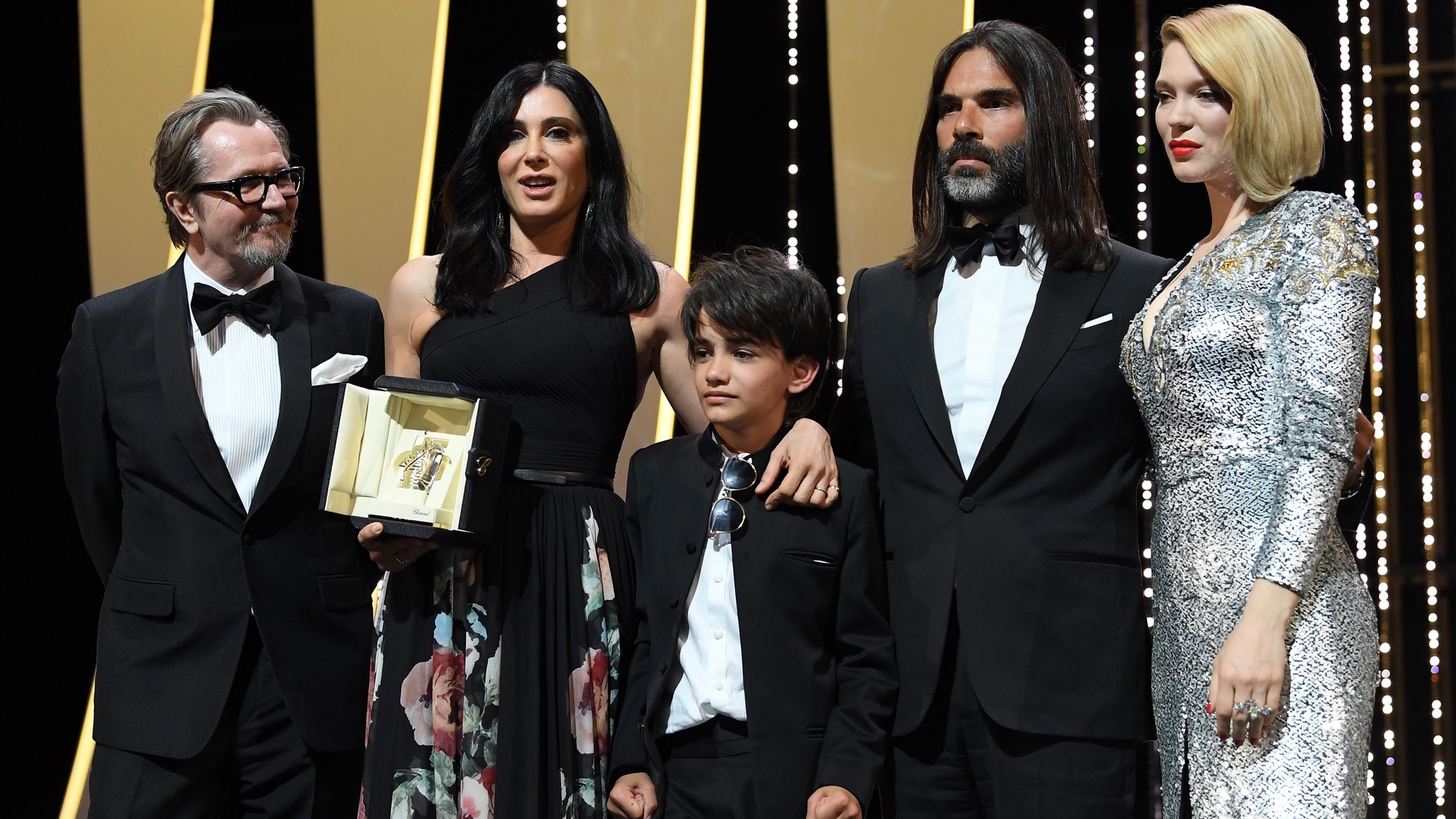Beirut Blast One Month On: 'A crime against humanity'
A month on from a blast that shocked the world, what next for Beirut? In a world exclusive, legendary Lebanese actress, director and activist Nadine Labaki reveals her heartbreak for her shattered nation.


A month on from a blast that shocked the world, what next for Beirut? In a world exclusive, legendary Lebanese actress, director and activist Nadine Labaki reveals her heartbreak for her shattered nation.
We watched the shocking footage of the August 4th Beirut blast. An explosion in the city's port destroying over half of Beirut. It's a tragedy resulting in at least 190 dead, 6,500 injured and leaving Beirut on its knees. Spurred on by this seismic event, anti-government protesters gather daily on its devastated streets and in its famous Martyr's Square.
The blast, believed to be caused by 2,750 tonnes of ammonium nitrate which had been unsafely stored, has so far seen only twenty officials arrested. Allegations of mismanagement, regarding the substance's storage, were an ongoing issue, more recently being voiced in October 2019 during sustained unrest over government corruption and economic hardship.
Nadine Labaki, one of Lebanon's biggest stars and political activist talks to her friend and journalist Andrew Threlfall about the fallout. Labaki's work covers a range of political issues such as war, poverty, and feminism. Her latest film, Capernaum won the Palme d'Or in Cannes and for her the accolade of first female Arab director to be nominated for an Oscar for Best Foreign Language Film.
Nadine, where were you when the Beirut blast happened?
'Our house is in one of Beirut's oldest districts called Achrafieh. My family was there for four months observing lockdown but we recently relocated some miles away. In horror I saw everything live on TV. I can't imagine what would have happened if we had been home. All of our windows and doors in Achrafieh were blown out. It will be sometime before it's habitable.
'I feel so fortunate my two children didn't witness the explosion firsthand. There isn't one family in Beirut who doesn't have a story of total devastation. The father of my son's teacher died and I know many many people who are badly injured.'

How on earth did you react after witnessing such a shocking event?
'I called many friends and every single one said, 'It's destroyed everything’. Only then did the magnitude of the explosion hit me. Up to half of the city is destroyed. Sitting in stunned silence, at first I thought it was a nuclear bomb. The devastation in my beautiful city is exactly like a nuclear bomb explosion. In fact, it's happened 75 years to the week since the atomic bombings on Japan.'
Celebrity news, beauty, fashion advice, and fascinating features, delivered straight to your inbox!
With so much devastation everywhere, what images will you never forget?
'Everywhere there were people covered in blood and dust. Emerging from buildings with blank eyes in total silence. There were very few cries, almost complete silence. It was very, very disturbing. People walking, just walking, walking nowhere. Numb. I felt like I was watching the walking dead.'
The Lebanese are famous for their resilience, but this feels like the final hammer blow. Do you feel the same?
'We're all traumatised one way or another. Many of us lived through wars and now this. I hate to say it but it almost feels like this was our destiny. The Lebanese are really tired. We want to live a normal life. It feels like a crime against humanity. If the world stays silent about what happened, it is collaborating with this crime. A crime committed by those who allowed the storage of dangerous materials. The world needs to keep being reminded of one fact. This is a man-made disaster. It is not a natural disaster. Direct negligence, corruption, stupidity and inefficiency made this happen. It's a month after the Beirut blast and there's still a sense we'll wake up from this. That we dreamt it. For us in Beirut it feels surreal.'

How do you think this will affect the younger generation, the ones protesting against the corrupt political elite?
'My heart breaks for the young. Especially when I see them in the street cleaning up the rubble day after day with no help from the government. They should be enjoying life, making plans and travelling. Instead they're exposed to this total destruction. They're picking up the remnants of broken houses and broken lives. Yet this injustice has also created an incredible feeling. There's an urge to change the world and transform Lebanon's reality. Also after all the supplies lost in the explosion, I truly believe sustainable home farming is one of the solutions.'
What lessons can we all learn from this terrible tragedy?
'Everyone needs a mission in life. Mine drives me to make films to help change the system for the better. Society isn't working anymore, none of it is working anymore. Our systems are failing, not just in the Lebanon but across the world. The concept of representation, the concept of borders, everything is so absurd. People who are not within the system are excluded and marginalised.'

Your film Capernaum highlights the plight of 1.5m Syrian refugees in Lebanon. You must take great joy from what happened to Zain Alrafeea, the refugee boy you plucked off the streets to be its star?
'I knew Zain was smart and charismatic the first time I met him. I thought this child's future cannot be growing up on the streets. He was special and I'm happy he is living in Norway speaking fluent Norwegian and English. When I first knew Zain he couldn't write Arabic, now he's texting me in Arabic. Zain has a great future.'
And how can we help rebuild Beirut's future?
'The only guarantee is to give money to the people on the ground working in the reconstruction. To the people who are feeding and sheltering the 300,000 new homeless.'
* How to help the Beirut blast victimsSend your donations to any of the following. These are charities and not Lebanon government-run organisations: The Lebanese Red Cross, Offrejoie and Impact Lebanon
Maria Coole is a contributing editor on Marie Claire.
Hello Marie Claire readers – you have reached your daily destination. I really hope you’re enjoying our reads and I'm very interested to know what you shared, liked and didn’t like (gah, it happens) by emailing me at: maria.coole@freelance.ti-media.com
But if you fancy finding out who you’re venting to then let me tell you I’m the one on the team that remembers the Spice Girls the first time round. I confidently predicted they’d be a one-hit wonder in the pages of Bliss magazine where I was deputy editor through the second half of the 90s. Having soundly killed any career ambitions in music journalism I’ve managed to keep myself in glow-boosting moisturisers and theatre tickets with a centuries-spanning career in journalism.
Yes, predating t’internet, when 'I’ll fax you' was grunted down a phone with a cord attached to it; when Glastonbury was still accessible by casually going under or over a flimsy fence; when gatecrashing a Foo Fighters aftershow party was easy-peasy-lemon-squeezy and tapping Dave Grohl on the shoulder was... oh sorry I like to ramble.
Originally born and bred in that there Welsh seaside town kindly given a new lease of life by Gavin & Stacey, I started out as a junior writer for the Girl Guides and eventually earned enough Brownie points to move on and have a blast as deputy editor of Bliss, New Woman and editor of People newspaper magazine. I was on the launch team of Look in 2007 - where I stuck around as deputy editor and acting editor for almost ten years - shaping a magazine and website at the forefront of body positivity, mental wellbeing and empowering features. More recently, I’ve been Closer executive editor, assistant editor at the Financial Times’s How To Spend It (yes thanks, no probs with that life skill) and now I’m making my inner fangirl’s dream come true by working on this agenda-setting brand, the one that inspired me to become a journalist when Marie Claire launched back in 1988.
I’m a theatre addict, lover of Marvel franchises, most hard cheeses, all types of trees, half-price Itsu, cats, Dr Who, cherry tomatoes, Curly-Wurly, cats, blueberries, cats, boiled eggs, cats, maxi dresses, cats, Adidas shelltops, cats and their kittens. I’ve never knowingly operated any household white goods and once served Ripples as a main course. And finally, always remember what the late great Nora Ephron said, ‘Everything is copy.’
